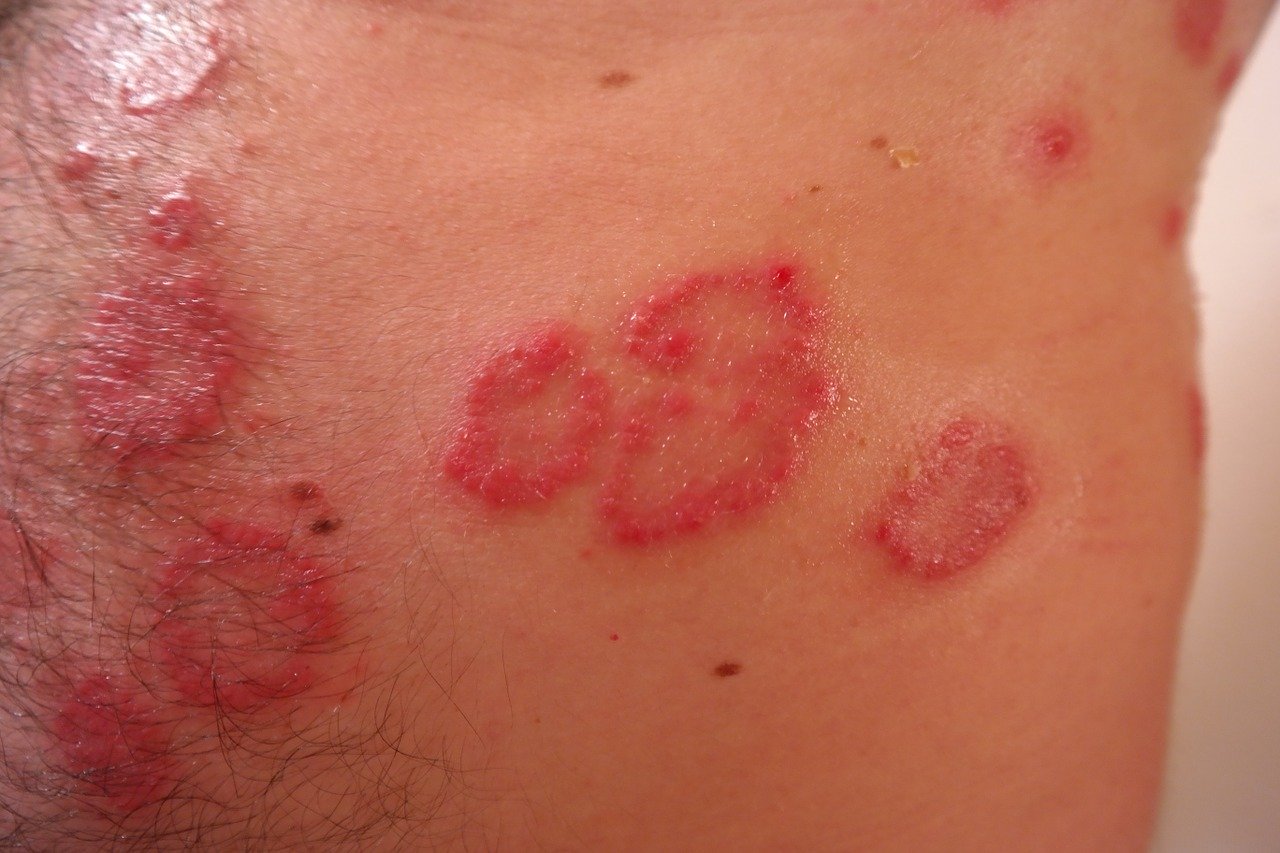In March 2020 researchers from Italy, USA and Serbia published their review on the interactions between the skin, microbiome, gut microbiota and psoriasis. The researchers stated that psoriasis is alternatively regarded as an inflammatory, pruritic, autoimmune, or even auto-inflammatory systemic chronic disease which affects not only the skin but the whole body. It is known that both genetic and environmental factors, including nutrition, may strongly influence the development of psoriasis and its progression. Increased body mass and a high fat diet may trigger as well as increase the severity of psoriasis. Moderate to severe psoriasis is frequently associated with numerous metabolic disorders including obesity, diabetes, dyslipidaemia, metabolic syndrome and non-alcoholic fatty liver disease. In fact, obesity is also an important risk factor for psoriasis. Fatty acids are increased in obese patients, and this leads to increased inflammation and insulin resistance. Recent evidence has suggested that vitamin D has a role to play in the development of several inflammatory skin diseases, and an association between low levels of vitamin D and psoriasis has been described. However, the potential value of vitamin D supplementation for psoriasis is still under debate. It has been seen that dietary antioxidants including omega 3 polyunsaturated fatty acids derived from fish oil, vitamins A, B12, C, D and E, as well as oligo-elements such as iron, copper, manganese, zinc and selenium, reduce oxidative stress and this could also be relevant in the development of psoriasis. Based on these findings, it has been proposed that monounsaturated fatty acid-rich diets, like the Mediterranean diet, have anti-inflammatory effects and can slow the progression of psoriasis. Low-energy diets, vegetarian diets, weight loss programmes, gluten-free or very low-calorie carbohydrate-free diets have also been shown to have a beneficial effect in psoriasis. Smoking, which increases severity, flare frequency, and even the incidence of the psoriasis, alcohol and pollutants can all have an effect on psoriasis. Interestingly, secukinumab, a drug used to treat psoriasis, was shown to be ineffective in psoriatic individuals following the use of marijuana.
The circadian rhythm, a natural, internal process that regulates the sleep-wake cycle and repeats roughly every 24 hours, has been regarded as a possible regulator of inflammation, healing, aging, neuroendocrine, and neoplastic conditions. The cyclic nature of sunlight, which influences the central body clock, also influences other peripheral tissues, including the skin, and this is only now slowly beginning to be understood. The shift in circadian rhythm may be occasional and short term, as in the case of jet-lag during intercontinental flights, or during fasting during Ramadan, or it may even be of longer term as in night shift workers. Night-shift workers, for example, are seen to experience not only an increase in severity of their psoriatic flares, but also an increased incidence of psoriasis, which suggests that a shift in the circadian rhythm (ie, sleep and diet) may be a risk factor for psoriasis.
There is now an increased body of evidence which suggests that the gut microbiome has a crucial role to play in the severity of psoriasis, thereby linking the skin and the gut microbiome. However, The Skin-Microbiome-Gut-Nutrient interaction is still only partially understood.
Up to 10% of individuals with inflammatory bowel disease are diagnosed with psoriasis, whilst individuals with psoriasis have a 3-fold higher risk of developing Crohn’s disease when compared to the general population, and individuals with Crohn’s disease have a 7-fold higher risk of developing psoriasis. Recently, it has been found that individuals with either psoriatic arthritis or skin psoriasis have a decreased bacterial diversity in their gut together with a reduced abundance of some bacterial taxa such as Akkermansia, Ruminococcus and Pseudobutyrivibrio, when compared to healthy controls. It has also been seen that there is a dysregulation in the ratio of Firmicutes/Bacteroidetes as well as a reduction in Actinobacteria in the gut microbiome of individuals with psoriasis. An altered gut microbiome may therefore have certain consequences, including poor regulation of intestinal immune responses, that may then affect distant organ systems. Given the gut microbiome’s influence on the Gut-Skin axis, it is thought that probiotic supplementation may have a promising role to play in the management of psoriatic individuals. In fact one study has shown that oral supplementation with the probiotic strain Lactobacillus paracasei decreased skin sensitivity and increased the rate of barrier function recovery. In addition, it is possible that faecal transplants could improve or resolve the imbalance of the gut microbiota seen in individuals with psoriasis. In fact faecal transplants have been used with success in inflammatory bowel disease. This approach is now currently being explored in individuals with psoriasis and there is limited evidence suggesting some benefit may be achieved, although the length of time the benefits last is of concern and currently under investigation.
Damiani G et al. Gut microbiota and nutrient interactions with skin in psoriasis: A comprehensive review of animal and human studies World J Clin Cases. 2020 Mar 26; 8(6): 1002–1012.

